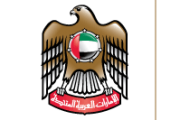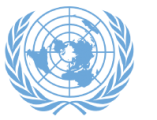Mr. President,
Excellencies,
Mr. President, let me express my delegation’s deep thanks for your stewardship of the WSIS+10 review, and for the support of the Secretary-General throughout the process. Today’s high-level meeting is a clear affirmation of the important role of the United Nations in our collective global efforts to achieve the WSIS vision.
Mr. President, the UAE is honored to have served (at your request) as co-facilitator of this important and timely review. Let me thank the co-facilitator Latvia for the excellent collaboration over the past six months. We also would like to express our thanks to all Member States, the United Nations and its specialized agencies including the ITU, as well as representatives of civil society, private sector and academia who have made the WSIS+10 process an exemplary platform for collaboration among all stakeholders of the Internet Society.
In October, my co-facilitator and I had the pleasure of attending this year’s IGF annual meeting in Brazil – to discuss the topic of “empowering sustainable development” and receive inputs from a range of WSIS communities. The strengthened engagement with the multi-stakeholder community since the adoption of the Tunis Agenda in 2005 has enriched the process considerably.
Mr. President, today in my national capacity I would like associate the UAE with South Africa’s statement on behalf of the G77, and to share key messages from the UAE’s experience in realizing the WSIS vision.
The UAE long recognized the potential of ICTs as a critical driver of development, and our national experience has illustrated the potential of ICTs for innovation and economic transformation. We have invested heavily in the ICT sector, and just as importantly built an enabling environment for the sector to thrive.
These investments have laid the foundations for our ICT sector to flourish and develop, and set trends at a local and regional level, with the aim of delivering effective change management approaches to government and the private sector.
The results speak for themselves:
- In 2015, the ITU ranked the UAE among the ‘most dynamic countries’ for having recorded above-average improvements in levels of ICT access, use and skills over the past five years.
- Today, 100 percent of our population has mobile phone subscriptions and the World Economic Forum (WEF) ranks us first in the world for mobile coverage and penetration
- And more than 90 percent of people in the UAE regularly use the Internet
- The WEF also ranks our government first worldwide for
- ICT use and government efficiency
- ICT impact on access to basic services
- ICTs importance to our governments vision of the future
We believe that national ICT development has supported our emergence as a logistics and shipping hub, a global finance center, and a leader in government service delivery. Independent telecom regulators, public-private partnerships, and openness to foreign investment are some of the key determinants of the expansion of the sector and our economy.
Building on these accomplishments, in its “2021 vision” the UAE government has set the ambitious goal of providing world-class public infrastructure, government services for all our citizens and residents.
However, as noted consistently through the WSIS+10 review, the potential of ICTs still remains inaccessible for many people worldwide. The digital divide, both within and among countries, has grave consequences for development: those without access to ICTs are increasingly marginalized.
To address this, the outcome document is firmly rooted in the 2030 Agenda, which all our leaders committed to here at the United Nations in September. The UAE is especially pleased to see the outcome document’s calls for universal Internet access by closing the digital divide and bringing the remaining 60 percent of the global population currently without access online.
The UAE believes the time has come to extend the principle of “leaving no one behind” to ICTs.
In this context, we welcome the outcome document’s call for immediate measures to achieve gender equality in Internet users by 2020 and commend the commitment to enhance women’s education and participation in ICTs – not only as users but also content creators, entrepreneurs, innovators and leaders. In the UAE, our early investment in girls and women is bearing fruit: today women and girls constitute more than half of our university graduates, including in STEM fields. I am pleased to note that the gender divide in Internet use in the UAE is marginal but we still have work to do.
Yet, as much as the Internet can positively impact societies, some darker aspects in the way the Internet is being used have emerged over the past years. Far too often, extremist networks have used the Internet for propaganda and recruitment, allowing them global and immediate access to vulnerable populations. This must be stopped, and we must work collectively to find the means to do so.
However, as much as the Internet can be used by extremists and terrorists as a tool for recruitment and radicalization, it can also be a powerful tool to tackle the root causes of extremism by promoting positive counter-narratives; enhancing societal participation; encouraging critical thinking and moderation and creating economic opportunities.
The WSIS+10 review has rightly recognized this threat, and Member States have clearly expressed their concern about growing uses of ICTs for terrorist purposes and cybercrime. We commend the outcome document’s focus on the importance of building confidence and security in the use of ICTs.
Mr. President, in closing, the UAE extends its deep appreciation to you for convening this high level meeting. It represents an important milestone on the path towards the full achievement of a people-centered, inclusive and development-oriented Information Society.
Through the WSIS+10 process we have identified the achievements, lessons learned and challenges of the past decade, and built a firm foundation and collective understanding for moving forward.
The UAE is fully committed to the WSIS process, and we look forward to continuing to work with all stakeholders in service of the WSIS vision.
Thank you.


